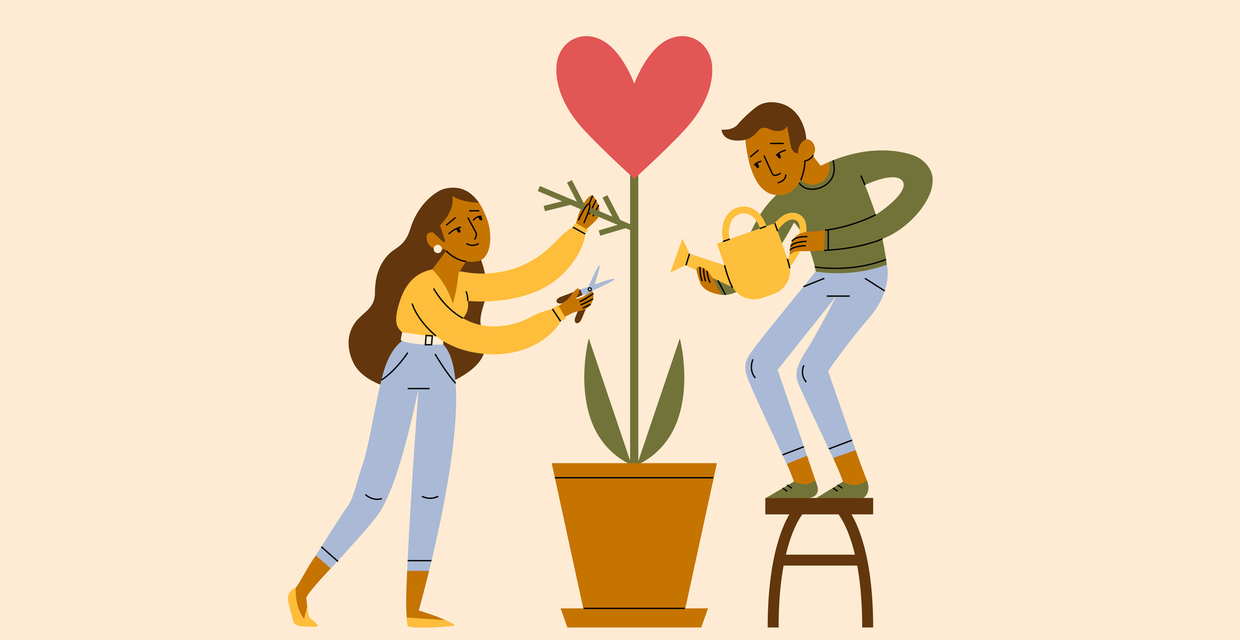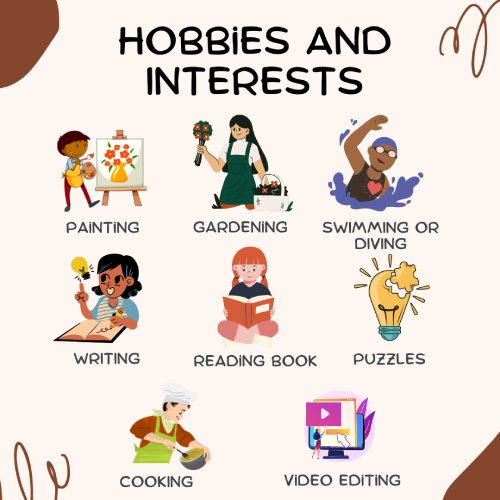
Hobbies and interests are the spice of life, adding joy and fulfillment to our daily routines. They also play a vital role in enhancing our romantic relationships, as they provide opportunities for personal growth, mutual support, and shared discovery. While having common hobbies and interests with a partner can foster a stronger bond, having different passions can also bring many benefits to a relationship. This article examines the various ways in which hobbies and interests that differ from those of a partner can contribute to the strength of relationships, expanding horizons, encouraging independence, respecting diversity, sparking curiosity, creating balance, and discovering romance.

When partners share their passions with each other, they expose themselves to new perspectives, experiences, and knowledge. This can enrich their personal and intellectual lives, as well as their relationship. As Betchen (2020) noted in his article, couples who learn from each other’s interests often develop a deeper appreciation and admiration for each other¹. Whether it’s listening to a partner’s favorite music, watching a partner’s favorite movie, or trying a partner’s favorite activity, learning from each other’s interests can enhance the connection and understanding between partners.
Pursuing one’s own interests allows one to express one’s individuality, cultivate one’s talents, and satisfy one’s needs. This can boost one’s self-esteem, happiness, and well-being, which in turn can positively affect one’s relationship. As Markman l. (2010) suggested in their book, couples who pursue their own interests often feel more fulfilled and less dependent on their partner for happiness. They also tend to respect and support each other’s choices and goals, fostering a healthy and balanced relationship.
Having different hobbies and interests does not mean that partners are incompatible or have nothing in common. Rather, it means that they have a variety of interests and preferences that make them unique and interesting. Respecting and appreciating these differences can enhance the attraction and admiration between partners, as well as the harmony and compatibility of the relationship. As Gottman and Silver (2015) stated in their book, couples who respect and appreciate each other’s differences often have a stronger friendship and a deeper intimacy. They also tend to avoid conflicts and criticisms, and instead focus on the positive aspects of each other and the relationship.
Having different hobbies and interests does not mean that partners have to pursue them separately or exclusively. Rather, it means that they have an opportunity to discover and try new things together, adding excitement and novelty to their relationship. As Aron et al. (2000) found in their study, couples who engage in novel and arousing activities together often report higher levels of relationship satisfaction and intimacy. Whether it’s joining a partner in a hobby they love, or finding a new hobby they both enjoy, exploring new interests together can strengthen the bond and the fun between partners.
Having different hobbies and interests does not mean that partners have to neglect or abandon their common interests. Rather, it means that they have a chance to find a balance between spending time together and spending time apart, between sharing passions and pursuing passions, and between being a couple and being individuals. Finding this balance can enhance the quality and the satisfaction of the relationship, as well as the personal and the relational growth. As Rusbult. (2009) suggested in their article, couples who find a balance between shared and separate interests often experience higher levels of commitment and loyalty. They also tend to avoid boredom and stagnation, and instead maintain interest and vitality in their relationship.
Having different hobbies and interests does not mean that partners have to lose sight of the romantic aspect of their relationship. Rather, it means that they have a way to rediscover and rekindle romance through different interests. Sharing one’s passions with a partner, or showing interest in a partner’s passions, can be a romantic gesture that expresses love, care, and attention. It can also create opportunities for surprises, compliments, and gifts, adding romance and spice to the relationship. As Gottman and Silver (2015) noted in their book, couples who show interest in each other’s passions often have a stronger emotional connection and a more passionate sex life. They also tend to avoid taking each other for granted, and instead keep the flame alive in their relationship.
InConclusion, Hobbies and interests are more than just sources of joy and relaxation. They are also powerful ways to strengthen relationships, whether by sharing common passions or discovering different ones. Having hobbies and interests that differ from those of a partner can bring many benefits to a relationship, such as expanding horizons, encouraging independence, respecting diversity, sparking curiosity, creating balance, and discovering romance. By finding the right mix of shared and separate interests, couples can enhance their connection, satisfaction, and growth. Hobbies and interests are not only the spice of life, but also the spice of love. As the famous author and philosopher Albert Camus once said,
Don't walk in front of me I may not follow. Don't walk behind me I may not lead. Walk beside me. just be my friend.











